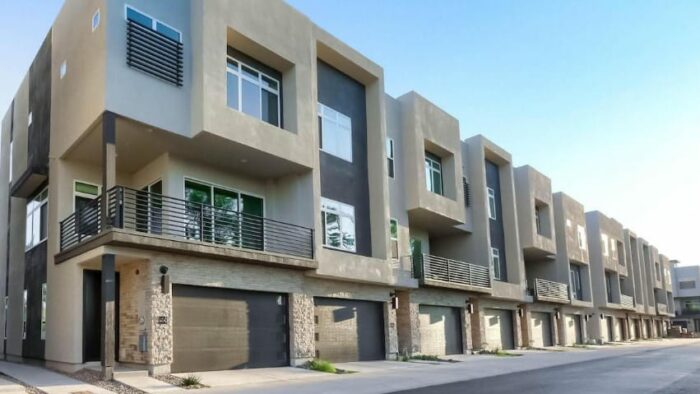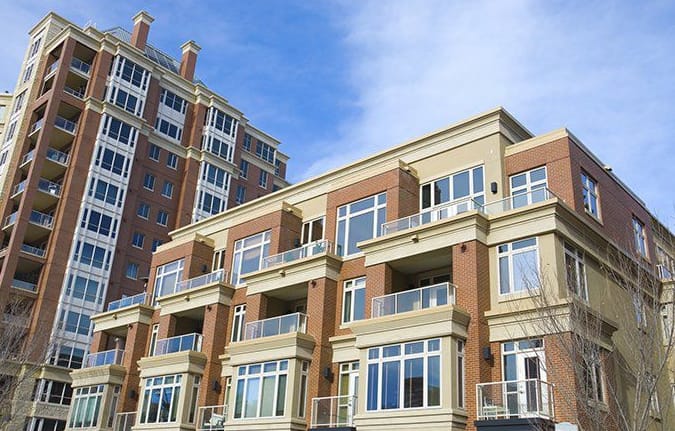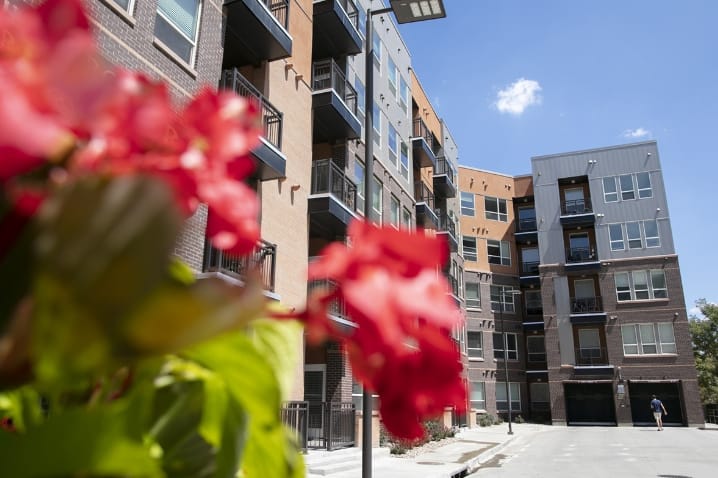What is a Residential Rental Property? That’s the million-dollar question on many people’s minds.
When investing in real estate, this term often arises. But what does it really mean?
A residential rental property might sound like some complex financial jargon. Despite its complexity, a residential rental property is actually quite simple to understand.
Simply put, a residential rental property is an investment that can potentially fill your pockets with passive income month after month.
Understanding the Concept of a Rental Property

Real estate investments can be daunting, especially when considering rental properties; however, the concept is not as overwhelming as it may initially appear.
But don’t worry. The concept is not as intimidating as it might seem at first glance.
Definition and Key Characteristics of Rental Properties
Rental property refers to any piece of real estate that an individual or entity owns with the intention of renting it out to generate income.
This could range from single-family houses, multifamily homes, student housing units, etc., all falling under this broad umbrella term.
In essence, you become a landlord once you own such properties and lease them out in exchange for monthly rents, which form your rental income.
While these incomes often cover mortgage payments along with maintenance costs, they also have the potential to yield profits depending upon various factors like location, condition, among others.
The Process Involved in Renting Out a Property
Kickstarting your journey into becoming a successful landlord involves several steps, from preparing your property to finding suitable tenants.
It’s essential to ensure that your rental home provides safe living conditions before advertising vacancies on popular platforms targeting maximum visibility within the local housing market, thereby attracting potential renters towards exploring further about offered amenities alongside proposed rent prices.
Screening tenants effectively plays a vital role here, where landlords need to verify their financial stability through credit checks besides assessing overall reliability based on previous renting history if available, thus minimizing chances of ending up in problematic situations later down the line during the tenancy period.
Once eligible candidates are found who agree upon the terms laid forth within the lease agreement, including duration, payment details, etc., the handover process begins, marking the commencement of a new chapter for both parties involved.
Landlords start receiving regular rents, whereas Tenants get access to rented premises throughout the agreed tenure, subject to adherence to rules set by the owners themselves via said agreements.
Advantages and Disadvantages of Owning Rental Properties

Real estate investment can be a lucrative venture, but it is not without its own set of potential risks.
Let’s examine the pros and cons that come with owning rental properties in greater detail.
Benefits Associated With Owning Rental Properties
A steady stream of passive income. That’s what many investors are after when they venture into property management and home ownership.
Let’s take a look at some key advantages:
- Steady Income Stream: Rental properties can provide a consistent monthly income through rental payments. This income can help cover the property’s mortgage, maintenance costs, and other expenses, and potentially yield a profit.
- Long-Term Appreciation: Real estate has historically appreciated in value over time. By holding onto a rental property for the long term, you may benefit from its appreciation, leading to increased equity and potential wealth-building.
- Tax Benefits: There are several tax advantages associated with owning rental properties. Expenses related to property maintenance, mortgage interest, property taxes, insurance, and depreciation may be tax-deductible, reducing your overall tax liability.
But there’s more to this game than just collecting rent checks every month.
As your property value appreciates, so does the worth of your investments.
Not only that, having an array of different assets like single-family rentals or multifamily homes in your portfolio helps spread out risk – we call this diversification benefits.
Plus, don’t forget about those juicy tax advantages, such as mortgage interest deductions.
Drawbacks That Come Along With Being a Landlord
Becoming a landlord isn’t all sunshine and rainbows, though – it comes bundled up with some serious responsibilities too.
For instance, dealing effectively with vacancies which lead to loss in potential rental income until new tenants move in.
It takes more than just being good at tenant screening; you need diplomacy skills coupled with a thorough understanding of local landlord-tenant laws.
- Maintenance issues: These unexpected hiccups might require immediate attention, thereby adding an extra financial burden on landlords.
- Rental demand fluctuations: During economic downturns, finding tenants willing to pay the desired rent prices becomes difficult, leading to a drop-in revenues.
- Tenant defaults: There could be scenarios where current tenants default on their payments, necessitating sufficient reserves set aside for covering any unforeseen circumstances arising during the course of managing these assets.
In short, while owning rental properties provides several attractive perks, including passive income generation and capital growth prospects, one must also consider the drawbacks associated with them before making the decision to invest in them.
Different Types of Rental Properties

When pondering rental properties, what is the first thought that comes to mind? Perhaps a single-family dwelling or an apartment building is what springs to mind when considering rental properties.
However, there are numerous variations of rentals available, ranging from residential to commercial and even specialized ones.
In fact, these can be broadly classified into three categories: residential rentals, commercial rentals, and specialized ones.
Each type has its own unique characteristics and offers different opportunities for property owners.
Overview on Residential Rentals
The bread-and-butter of most real estate investors’ portfolios are residential rental units. These include anything from quaint little cottages to sprawling multi-unit complexes like duplexes or triplexes (also known as multifamily homes).
Apartments aren’t just popular with college students looking for affordable student housing options – they’re also in high demand among families who prefer renting over owning their primary residence.
The U.S housing market continues to see robust growth in this sector, as per NAR statistics.
Commercial Rentals Defined
Moving beyond residences brings us into the realm of commercial real estate investments.
This includes office buildings, retail spaces such as malls or shopping centers, industrial properties including warehouses, etc.
Commercial leases tend to be longer than residential ones, providing stable cash flow but requiring significant upfront investment along with knowledge about the local business environment.
NAR’s research on commercial real estate provides valuable insights into how these investments work, the potential returns you could expect, and with risks involved.
Introduction to Specialized Rentals
Last but certainly not least, we have specialized rentals which cater to specific requirements, like vacation homes targeting tourists seeking short-term stays; mobile home parks offering affordable housing options; self-storage units generating consistent revenue even during economic downturns; senior living communities meeting the needs of the elderly population, etc.
Each type comes with its own set of challenges and rewards, thus requiring careful consideration by prospective landlords before venturing into them.
To navigate smoothly through this process, especially when dealing with legal aspects related to renting, gathering necessary documents, lease agreements, and tenant applications, and exploring online resources would help immensely in making informed decisions and expanding your portfolio beyond traditional assets.
Exploring Investment Opportunities in Rental Property Market

Real estate investors can capitalize on the rental property market to diversify their portfolio and create a passive income stream.
However, the key to success lies not just in buying rental properties but also in understanding local housing trends and seeking expert advice.
Importance Of Research In Real Estate Investments
Detailed exploration is essential for any successful investment plan, particularly when it comes to rental properties.
This includes analyzing current property values, the future growth prospects of neighborhoods, rent price trend analysis, and overall demand for rentals.
A good investor doesn’t simply rely on gut feelings or vague assumptions; they delve into hard data before making decisions.
They study neighborhood characteristics that could affect tenant desirability – from schools’ proximity to crime rates – using reliable online resources like Realtor’s Home Search tool.
Role Of Professional Advice In Making Investment Decisions
Beyond personal research efforts lie professional insights, which can be invaluable during the decision-making process.
Expertise provided by seasoned real estate agents who have intimate knowledge about specific markets can guide you towards promising areas aligned with your investment goals.
Another resource worth tapping into is legal professionals specializing in real estate law; these attorneys help navigate complex contractual obligations while ensuring compliance with zoning regulations, among other things.
Online platforms such as FindLaw Directory offer an extensive list of experienced lawyers across various jurisdictions, catering specifically to needs related to renting out residential units.
Evaluating Renovation Costs And Potential Returns
The cost-benefit ratio plays a crucial role when considering renovations on potential investments. For instance, upgrading appliances might attract higher-paying tenants, leading to increased monthly revenue, thereby enhancing asset value simultaneously.
However, careful consideration should be given before undertaking major upgrades, particularly if costs outweigh benefits derived through enhanced rents or a higher resale price later down the line.
A practical approach here would involve comparing the average rent prices of similar upgraded units within the locality using tools like.
Financing Options For Your Investment

Briefly, when it comes to real estate investing, the financing of your rental property can either maximize or minimize your cash flow and return on investment.
Let’s talk about it.
Understanding Traditional Mortgage Loans And Their Impact On Cash Flow
The most common way to buy a rental property? A traditional mortgage loan from banks or credit unions. If you possess a solid credit standing and steady earnings, this may be an alternative for you.
Mortgage loans come with down payments – typically 20% to 25% of the purchase price.
Yes, that’s quite an upfront cost. But here’s the upside: It allows investors like yourself to leverage their capital effectively by acquiring properties they otherwise couldn’t afford outright. Investopedia’s guide on mortgages, is worth checking out if you want more details.
However, there are strings attached. You’re taking on debt that needs monthly repayments (principal plus interest). This regular financial commitment will affect your cash flow until the loan is fully repaid.
Alternative Financing Methods For Investors
If getting approved for a traditional mortgage feels like climbing Mount Everest due to strict lending criteria, among other reasons, fear not. There are alternative financing methods available, such as hard money loans or private lending options.
Hard money lenders, often used by real estate investors looking for short-term funding solutions, base their decisions primarily on the value of the asset rather than the borrower’s credentials, making them potentially useful when quick access to funds is required during auction purchases or rapid renovation projects before refinancing cheaper sources.
But remember, these types have higher interest rates compared to conventional ones, so tread carefully.
Falling under a different regulatory framework compared to banking sector operations, private lenders are generally individuals or small companies willing to lend on a personal secured basis against assets.
They offer flexibility regarding repayment terms and conditions and may accept less unconventional proof, etc. However, this could depend on the risk assessment done on an individual level.
It’s important, though, that both parties involved understand the legal implications thoroughly before entering into any agreement, since it falls under a different regulatory framework compared to traditional banking sector operations.
So while exploring these options, do consider consulting professional advisors to ensure smooth sailing through uncharted waters.
Legal Aspects To Consider When Dealing With A Rental Property

The legal landscape of rental properties can be a minefield for the uninitiated. It’s not just about buying an investment property and collecting rent; there are numerous responsibilities, rights, and regulations that landlords must navigate.
In essence, having comprehensive knowledge in these areas will help you avoid potential pitfalls and keep your real estate investments on track.
Getting Familiarized With Legal Definitions Related To Renting
If you’re new to the world of single-family rentals or multifamily homes, understanding some basic definitions related to renting could save you headaches down the line.
For instance:
- A security deposit’ refers to money held by landlords during the lease term against possible damages caused by tenants beyond normal wear and tear.
- The process called tenant screening’ involves conducting background checks on prospective renters before signing any agreements with them. This helps safeguard property owners against problematic tenants who may default on payments or cause damage.
- A Lease Agreement outlines the rules associated with living in rented space over an agreed period between the landlord and tenant, thus providing protection should disagreements arise later.
Gathering Necessary Documentation For Smooth Operation Of Your Business
No matter if it’s student housing units, residential apartments, or commercial spaces – gathering the necessary documentation required when dealing with different types of rentals is critical for every landlord.
Conclusion
So, you’ve journeyed with us through the world of residential rental properties.
You now understand that a residential rental property is an investment asset in real estate.
An owned dwelling rented out to tenants for the purpose of generating income.
We’ve explored the upsides like passive income and wealth accumulation opportunities, as well as potential downsides, such as landlord responsibilities and market fluctuations.
Different types of rentals – be it residential, commercial, or specialized have been discussed.
You’re aware of how crucial research is before diving into this investment pool and how professional advice can guide your decisions.
Financing options ranging from traditional mortgages to alternative methods are no longer alien concepts.
The legal aspects associated with renting aren’t daunting anymore either!
Ready to make the most of these helpful insights? Contact us and let’s get started!
 Jessica Paster The Future is Green
Jessica Paster The Future is Green